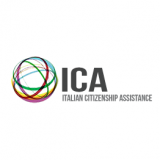
Italy is one of the most attractive destinations in the EU; it is known for its cultural heritage, beautiful landscapes, mild weather and some of the most celebrated food and beverages, among other reasons. It comes as no surprise that many retirees look to Italy as one of their top options to spend their golden years; in fact, Italy is even simpler to retire to compared to other countries and it is in the top ten choices for retiring abroad.
As Italy is a desired destination by many, the Italian government has designed numerous visas for people who wish to work or study in Italy and the Elective Residency Visa, in particular, for those who wish to retire to Italy.
While many of our previous articles have briefly described the Elective Residency Visa as a means to relocate to Italy and ultimately obtain Italian citizenship, this article will focus specifically on the eligibility requirements to apply for the visa; it will also outline the application process and it will provide you with an insight into the regions that are worth considering if you are moving to Italy.
Who is eligible for the Elective Residency Visa?
Despite its referenced name, “retirement visa,” if you are 18 years of age or older and would like to move to Italy permanently, this visa is meant for you. Please note, it cannot be used for extended tourism. The Elective Residency Visa is an option if you have a high self-sustaining income of approximately 32,000 Euros. Please bear in mind that the specific requirement might vary depending on the consulate to which you apply. If you are planning on relocating to Italy with your spouse, some consulates might also require proof of income for your spouse; however, if your income is sufficient to cover both of you then proof of income for your spouse might not be necessary. If you have minor children they will automatically be included in your application for the visa and they will also be allowed to attend school in Italy.
It is important to bear in mind that your income must prove to remain steady in the future and that it cannot come from your employer. Acceptable sources are from a pension scheme, any form of passive income (such as being a partner in a company), returns on investments or income from owned properties. Savings may also be taken into account depending on the consulate to which you apply.
An important fact to consider is that while this visa allows you to purchase property in Italy, it does not allow you to seek employment while in Italy.
Finally, in order to apply for the visa you need to provide a registered lease or deed for property in Italy. The lease must cover you for the entire duration of your stay in Italy.
How do you apply?
In order to apply you will need to check the specific requirements on the website of the Italian consulate that covers the jurisdiction where you reside; this process cannot begin in Italy. Upon inquiry, you will need to book an appointment at the Italian consulate and while there can be variations, the required documents will include:
- A duly completed application form, which can be found on the consulate’s website;
- official letters from banks or financial institutions that prove substantial and stable private income originating from pensions, properties or investment funds or from stable economic commercial activities. Income deriving from subordinate work is not taken into consideration;
- tax returns from the last two years;
- a letter specifying your reasons for moving to Italy permanently;
- a valid passport;
- a one-way travel ticket reservation;
- a registered lease or deed for property in Italy.
In the case you apply with your spouse, each of you will need to pay a visa application fee. You will also need a certified copy of your birth and marriage certificates.
How long does the Elective Residency Visa Last?
The Elective Residency Visa is valid for 365 days. It is worth mentioning that this visa is for non-EU residents. If you hold an Elective Residency Visa, you will need to go to the Questura (“local police headquarters”) within 8 days from your arrival in Italy and apply for a residency permit (permesso di soggiorno). Every year the Questura will verify that you meet the requirements and it will re-issue the residency permit; after 5 years you can apply for permanent residency in Italy. If you wish to apply for Italian citizenship by residency, you will be able to do so after 10 years of legal residency in Italy. Please bear in mind that when you obtain your residency permit you will need to register at the registry office (ufficio anagrafe) of the municipality where you reside. Being registered comes with many benefits, such as being able to obtain a tax code and registering with the national health service, to name a few.
How long does it take to acquire the Elective Residency Visa?
Though processing times and cases can vary in length, the process takes place in three stages:
- Elective Residency Visa Application: 2-6 weeks
- Residency Permit Application: 3-5 months
- Residency Registration: 1-3 months
Where should you look to retire and how much does it cost?
Sicily, Apulia, Tuscany, Abruzzo, Lazio and Lombardy are among the most popular destinations among retirees and foreigners in general. Apulia and Sicily are both located in southern Italy and they have beautiful coastal towns and beaches. Meanwhile, in the cosmopolitan region of Tuscany, you will find beautiful landscapes with a heavy emphasis on Italian culture, history, art and wine. Abruzzo, which is more rural, has a coast along the Adriatic Sea in central/ southern Italy, and has been known to draw nature lovers with its skiing, hiking, lakes and mountainous geography. If you are not exceptionally fond of the coastal regions, Lombardy is in the North center of Italy and it is known for its diversity and affluence. It takes the lead for being the most industrial and commercial region in Italy. If you would like to learn more about the differences between living in the north vs in the south of Italy click here.
As of 2022 an approximate guess of the monthly cost to live in Italy is 1500 Euros making it on average lower than the cost to live in the US. If you choose to reside in larger cities with high tourist volumes, such as Milan or Rome, it is approximately 400 Euros extra; of course, this is not an exact cost as each individual's living situation is different. Typically, the South of Italy has a lower cost of living compared to the North.
It comes as no surprise that Italy is one of the most popular destinations for retirees as it is rich in history, culture, beautiful landscapes, and compared to retiring to other nations, moving to Italy can be a relatively easy process when obtaining the Elective Residency Visa. If you would like more information about the elective Residency Visa in order to follow the Italian dream and relocate to Italy, do not hesitate to contact us at [email protected] or at +1- 323 – 892 – 0861.



